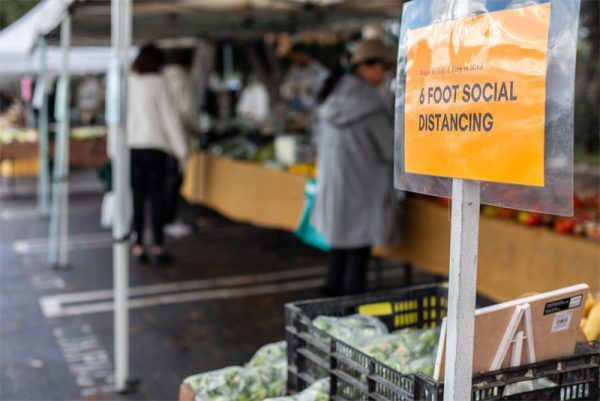As the country makes plans to reopen restaurants, retail, public buildings, and schools, your topmost concern should be the safety and well-being of workers and customers alike. Your reopened business will be scrutinized and the measures you take to reopen safely will go a long way in how your clients and customers feel about supporting your company post-pandemic. The risks are still real so it’s important to be scrupulous in formulating your reopening plan and how you execute it.
Below are a few tips and suggestions to help you safely reopen your small business to the public.
Three Key Points to Consider
While experts and government officials debate the best practices to safely reopen businesses, three key points stand out as important factors customers and employees will consider as they dip their toes back into the public waters.
- Will I have to be indoors or outdoors?
- Will I have to be near employees and other customers?
- Will I have to be “there” for a long time?
In the early days of reopening it’s a fair bet that employees and customers will more likely venture back to your business if their “outing” takes less time, takes place outside and they can be kept at safe social distances. These are good points to keep in mind as you devise your strategy for getting back to business.
Assessing Risk of Reopening
Any reopening strategy should begin with a risk assessment, according to the John Hopkins Center for Health Security. The risk level of your business is evaluated based on “the risk of possible COVID-19 exposure to employees and customers and the risk of further spread of COVID-19 should your business reopen or expand operations without any additional modifications to operations.”
Ask yourself the following questions:
- Does your business require a high density of people in your facility?
- Does your business require employees to travel to numerous different sites in order to conduct business?
- Does your business require international travel?
- Does your business require employees to touch customers or clients?
- Does your business require handling and transferring of goods/products between employees and/or customers?
- Does your business require prolonged close contact between employees? Between employees and the community?
- Do employees and customers touch the same surfaces, utensils, instruments, towels, devices on a regular basis?
- Does your business require employees to work directly with the “vulnerable” population such as the elderly, sickly, disabled?
Only when you and your employees understand the specific risks associated with your business can you modify business operations to reopen in a safer environment.
Modifying Your Business Operations for Safety
Fortunately, there are a number of solutions and modifications available to reduce the risk of spreading Covid-19 and to reassure your employees and customers you are doing everything possible to keep them safe. Consider these modification suggestions for the short term or as permanent changes in your business:
- Take your business online. Or determine what part of your business can be done online.
- Continue work-at-home options for employees.
- Create employee shifts to lessen the number of people in your office/store at one time.
- Restrict the number of people inside at any time including employees and customers.
- Move part of your business outside.
- Make meetings with clients and/or employees virtual meetings.
- Keep a social distance of six feet between people especially in offices, waiting rooms, employee/customer interactions.
- Do not accept cash.
- Limit all travel, domestic and international.
- Obtain necessary cleaning supplies, personal protective equipment, and other critical supplies.
- Provide handwashing and hand sanitizer stations for employees and customers.
- Create schedules for frequent cleaning.
- Display signage throughout your facility for employees, clients, customers, about correct and healthy practices.
For restaurants and retail reopening, your city and industry associations will have very specific guidelines on best practices. The FDA recommends using tape and partitions to minimize close contact and also restrictions on how many employees should be in shared spaces at the same time, including kitchens, breakrooms, and offices. Food businesses should also limit self-serve food and drink stations. Other suggestions include avoiding the use of shared items such as menus and condiments (use single-use condiments). Use disposable or digital menus when possible and toss disposable menus after each use. Use no-touch trash cans.
For retail businesses, it all starts with educating employees. The National Retail Federation (NRF) suggests that you put together a return to work “taskforce” to be the company’s experts in Covid-19 safety measures, create a transition plan, and determine which workers are needed where. Employees will need to be screened on a regular basis, new signage ordered, and cleaning schedules scrupulously maintained. It’s important to realize hours for disinfecting will need to be worked into the daily schedule, so you may need to modify your “regular open hours.
Additional Resources
Here are a few resources you can use to help make your reopening go smoothly and hopefully relieve some of your stress:
- NRF Operation Open Doors Checklist
- Coronavirus Retail Restrictions by State
- National Restaurant Association COVID-19 Reopening Guidance Update
- Operational Toolkit for Businesses Considering Reopening or Expanding Operations in COVID-19
- OSHA Guidance on Preparing Workplaces for COVID-19
Finally, while you’re diligently getting your business back open, remember the CorpNet team is ready to help take care of necessary documentation.
Our business formation and compliance specialists are here to make sure it’s super easy for you to manage your paperwork and stay in compliance.





